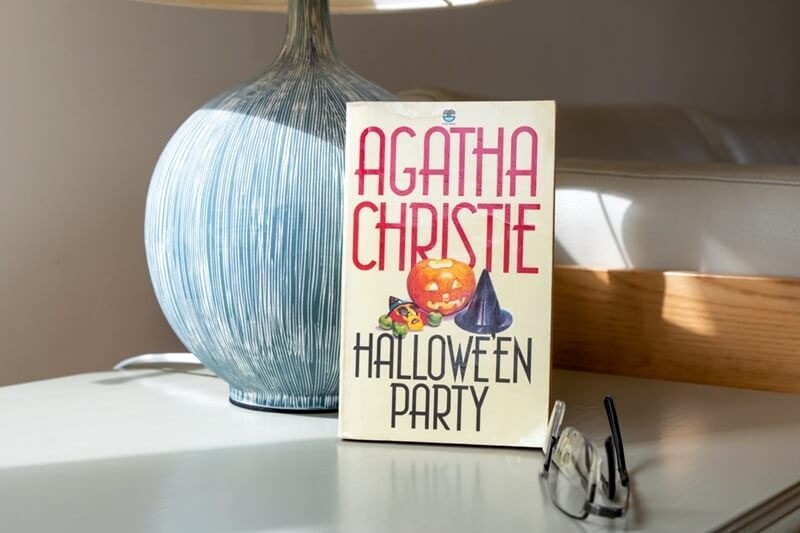How to Choose the Right Book for Your Reading Level

Selecting the appropriate book might be difficult, particularly considering your reading level. Whether you read expertly or just starting, the correct book keeps you interested, improves your abilities, and makes reading enjoyable. This is a manual on selecting the ideal book for your reading ability.
1. Understand Your Reading Level
The first step in choosing books is understanding your reading level. Your reading level reflects how well you know a text's words, sentences, and ideas. You may have heard of terms like "beginner," "intermediate," or "advanced" when talking about reading levels.
- Beginner Level: Short sentences, simple words, and basic ideas.
- Intermediate Level: More complex words, longer sentences, and more profound ideas.
- Advanced Level: Complex structures, rich vocabulary, and challenging themes.
Once you know your level, you can better select books that are easy enough for you.
2. Pick a Genre You Enjoy
When you're interested in the material, reading is far more fun. Enjoy mystery, adventure, fantasy, or historical fiction? Even if the book is challenging, choosing a genre you enjoy will make reading more exciting and assist you to remain motivated.
Your reading ability will affect whether some book genres are more or less complicated. Science fiction, for instance, could employ sophisticated terminology, whereas romance books employ more straightforward vocabulary.
3. Check the Book's Length
While shorter novels could be more straightforward, longer works are generally more sophisticated. Starting with shorter works or novellas is an intelligent idea whether your skill is beginner or intermediate. These books will leave you with a manageable amount of information; you can finish them faster to feel successful.
Longer books or series could be a fantastic approach for advanced readers to delve deeply into the narrative and hone their reading abilities.
4. Look at the Vocabulary
Look at the opening few pages of a book before deciding to buy it. Do you understand most of the words? This should be different; the book might be too advanced for your reading ability.
An excellent guideline is to select a book in which you grasp 90% of the words on a page. You will be pushed but not annoyed. If you come across some new words, it's okay since studying vocabulary helps raise your reading ability.
5. Consider the Sentence Structure
Reading fewer, more straightforward phrases in books makes sense. Beginning and early intermediate readers should concentrate on novels with simple words. Advanced readers might find longer, sophisticated sentences, including many ideas, more appropriate.
Choosing more straightforward books is good if the sentences could be more complex or lengthy. You will still be able to appreciate the narrative and advance your reading ability.
6. Read the Book Blurb or Sample
Most books have a summary or "blurb" on the back or inside cover. This short paragraph will give you an idea of the book's plot and writing style. Read it to see if the language seems appropriate for your reading level.
Some platforms also offer sample chapters or previews. Reading a few pages from the beginning of the book can help you decide if it's a good match for your level. If you find yourself lost or confused immediately, it might be worth looking for a different book.
7. Use a Reading Level Guide
Many websites and libraries use reading-level guides to classify books. These guides can help you find books at your level more quickly. For example:
- Lexile Measure: This system ranks books based on difficulty. The higher the number, the more challenging the text.
- Accelerated Reader (AR): This program assigns book points based on difficulty and length. Lower points usually mean more accessible books.
- Fountas & Pinnell: This system organizes books by grade level and difficulty in many schools.
If you're unsure about your reading level, these tools can help you find books matching your ability.

8. Ask for Recommendations
Don't hesitate to ask a teacher, librarian, or more experienced reader for recommendations. They can suggest books that are appropriate for your level and personal interests.
Sometimes, friends or family members can recommend books they enjoyed that match your reading ability. It's also a great way to start conversations about books and share reading experiences.
9. Explore Different Formats
Books come in various formats; sometimes, the format can affect how easy or hard it is to read. Here are a few options to explore:
- Graphic Novels: These books use pictures along with text. The images can help you understand the story and make it easier to follow. They're great for all reading levels, especially for beginners or those who enjoy visual storytelling.
- Audiobooks: Listening to a book can be a fantastic way to understand complex stories, primarily if the narrator uses different voices for characters. Audiobooks can also help with pronunciation and fluency.
- Ebooks: Many ebooks offer built-in dictionaries, making it easy to look up unfamiliar words as you read. This feature can help you improve your vocabulary without interrupting the reading flow.
10. Start with a Book Series
Book series are a great way to stay motivated and progress as a reader. Once you've read the first book, becoming familiar with the characters and world can make reading the following books easier. Series also helps build momentum, as you'll likely be excited to discover what happens next.
Popular series like Harry Potter or Percy Jackson offer engaging stories with manageable language for beginner and intermediate readers. Advanced readers might enjoy more complex series like The Lord of the Rings or The Wheel of Time.
11. Set Realistic Goals
When choosing a book, it's essential to set realistic goals. Start with something you're confident you can finish. This will build your confidence and help you tackle more intricate books later.
For example, if you're a beginner, you might aim to read a 100-page book within a week. A 200-300 page book in two weeks is a good goal for intermediate readers. Advanced readers can take on longer, more challenging books at their own pace.
12. Revisit Old Favorites
Sometimes, going back to a book you've read before can help you gauge your progress. If a book that once felt difficult now seems more straightforward, it's a sign your reading skills have improved!
Revisiting familiar stories can also be comforting and help reinforce new vocabulary or ideas you may have missed the first time.
13. Challenge Yourself Gradually
Don't be afraid to push your boundaries a little. Choosing books just slightly above your reading level can help you grow as a reader. However, be mindful not to jump too far ahead, which can lead to frustration and discouragement.
If you've mastered beginner-level books, try an intermediate one. If you're comfortable with intermediate-level books, slowly transition to more advanced texts. By challenging yourself gradually, you'll build more vital reading skills without feeling overwhelmed.
14. Enjoy the Process
Finally, remember that reading should be an enjoyable experience. The right book will match your reading level and entertain, inspire, and teach you something new.
Take your time finding the perfect book. With so many different book genres, styles, and formats available, you will find one that fits your current abilities and interests.
Conclusion
By following these tips, you'll be able to choose the right book for your reading level and enjoy the process of becoming a better reader. Keep exploring new books, challenging yourself, and, most importantly, having fun!
This content was created by AI





